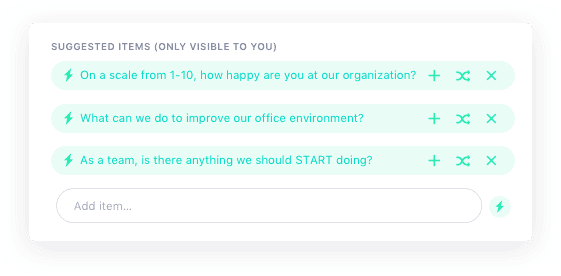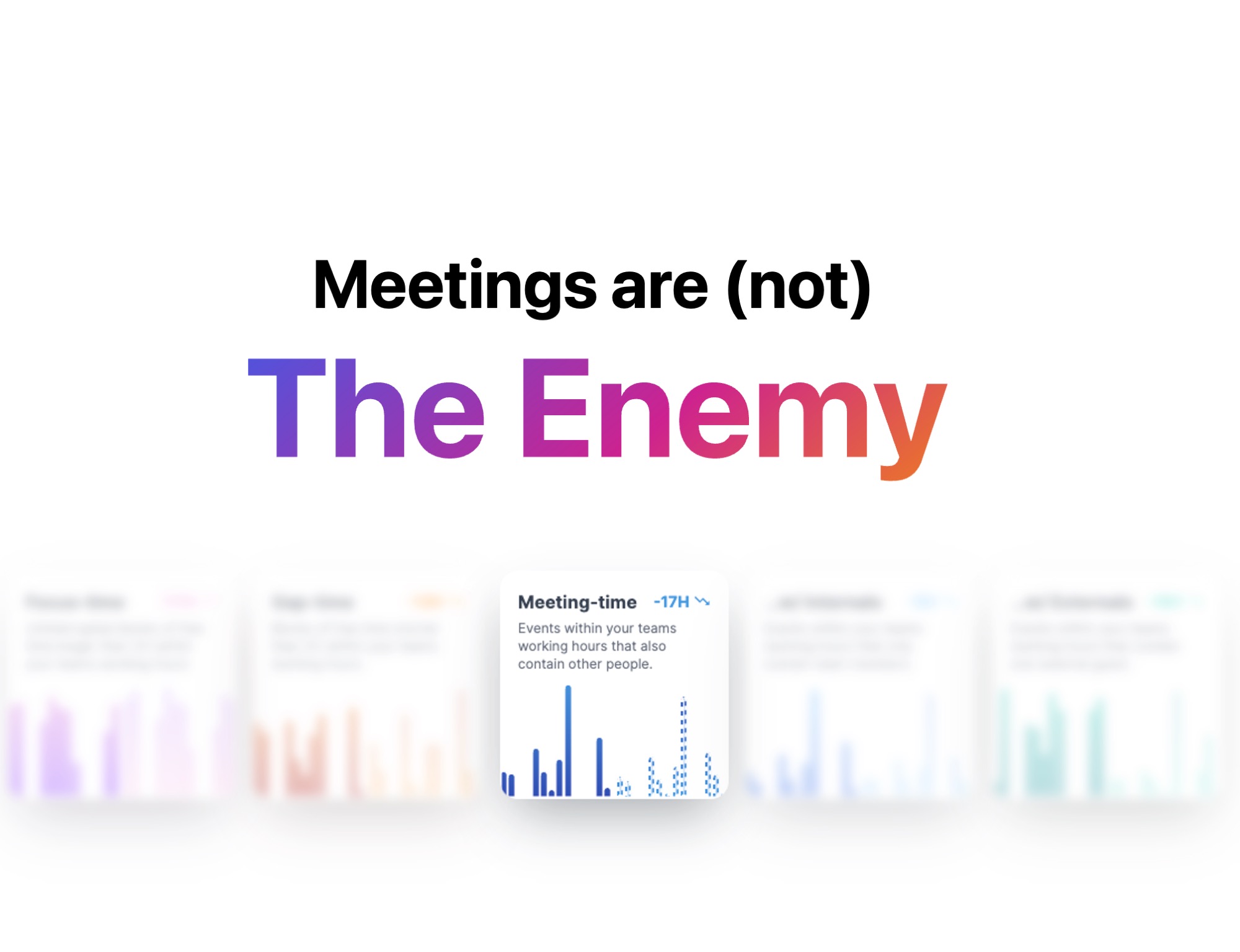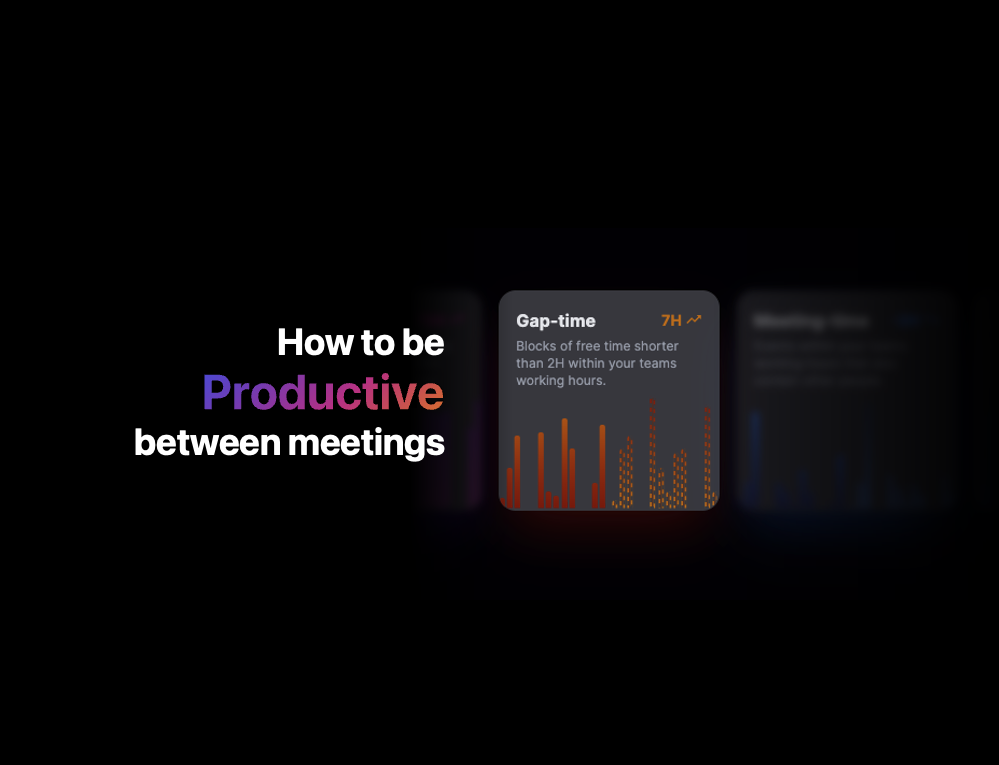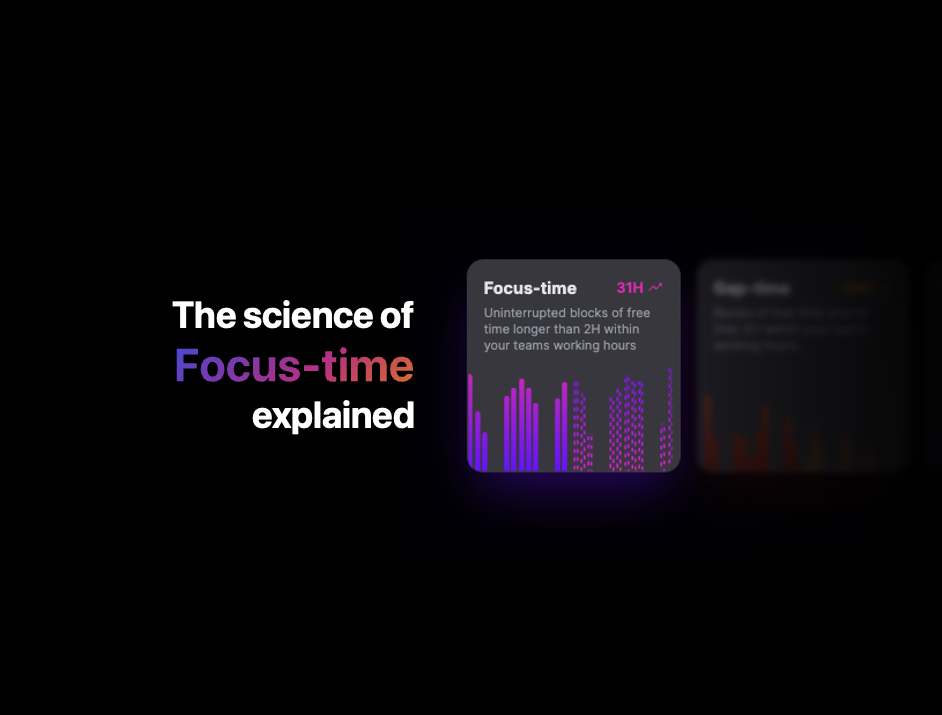The top 10 questions managers are asking in one-on-one meetings
6 min readWe collected data from hundreds of managers and compiled this list of the top 10 questions managers are asking in one-on-one meetings.

I love one-on-one meetings. It’s a chance to swap feedback and make sure our company is working. It’s also one of the reasons we built our one-on-one meeting software. One of the features people love most is our Question Suggester. If they’re stuck for something to add to their agenda, we suggest questions they could use to start a productive conversation.
Want to give it a try for yourself? Get our free meeting agenda app to see the Question Suggester in action! Click here to get started.

I wanted to know which questions get used most often, so I dug into the data (I can see the suggested questions they chose, not what gets typed!). So, without further ado, here are some one-on-one tips: the top 10 questions asked in real-life ones as judged by real-life managers! So if you want some of the best one-on-one questions for your next one-on-one, check these out.
1. What are the biggest time wasters for you each week?

It’s no surprise that people waste a lot of time at work… not only do 89% of people openly admit to wasting some time, but seemingly productive “work” tasks can actually be large time wasters. For example, your employees waste:
- 2 hours per day simply recovering from trivial interruptions/distractions.
- 1.55 hours per day in unproductive meetings
- $1,250 of their salary managing spam, $1,800 on unnecessary email, and $4,100 on poorly written communications.
2. Is there anything we should START doing as a team?

Thomas J. DeLong, a professor at HBS and author of Flying Without a Net, says the best questions for effective feedback are: what should I start doing, what should I stop doing, and what should I keep doing.
In my experience direct feedback like that can be a little tough for employees to share with their manager, so we tweaked this question to include “as a team” to make it a little more approachable.
3. Would you like more or less direction from me on your work?

No one wants to be a micro-manager, but often employees aren’t comfortable telling their managers to lay off a little. This question gives employees the opportunity to give honest and constructive feedback to their managers in one-on-one meetings without the fear of hurting feelings.
4. Do you feel you’re getting enough feedback on your work? If not, where would you like more feedback?

Something I learned the hard way is the timing of your feedback matters just as much as the feedback itself. Giving thorough feedback on launch day isn’t productive — unless it’s about typos. Having conversations like these during one-on-one meetings makes sure the feedback is being given at the right stage.
At SoapBox, I use the 99/50/1 framework which our friend Robleh Jama of Shopify (formerly founder of TinyHearts) wrote about.
5. What could I do as a manager to make your work easier?

I, like many leaders, have been the victim of the Iceberg of Ignorance. According to the theory, 96% of problems are unknown to top managers — and the ones they do know about might not be the right ones to focus on. This simple question gives employees the opportunity to make their managers 1% less ignorant. Think of it as the Kaizen approach to management! More on that, here.
6. Is there an aspect of your job you would like more help or coaching?

A great workplace relationship is all about managers helping employees be better, and employees helping managers be better. In a way, I see this question as asking the employee to help coach the manager. A help-me-help-you situation.
Don’t think this is a key question to ask? Consider this: Google did a multi-year, double-blind study on its managers. They found the single most important competency that separated high performing managers from low, was coaching.
7. Do you feel you’re getting enough feedback?

Very similar to #4. In general, I wouldn’t recommend asking Yes/No questions like this — unless you’ve developed a great rapport with the employee. You’ll need to be quick on your toes on where to take this conversation.
One follow-up that I’ve found productive is, “What type of feedback is most valuable/are you missing?”
8. How could we improve the ways our team works together?

Most managers say the hardest part of the job is “people problems”. People are complex so it can be hard to pinpoint the root of these problems, but one thing’s for sure — you have a better chance of solving them if you include your employees in the conversation.
Providing space for you and your employees to openly talk about ways to work better together can help you uncover issues but remember — the hardest issues to talk about might be about you, so be incredibly attentive!
9. On a scale of 1–10, how happy are you at work?

I’m glad this made it to the top 10. I’m a big fan of this question, not because of the question itself, but because of the follow-up question it enables.
Say the employee responds with “uhm… I’d say a 7”. Your follow up would be, “How do we get you to an 8?”. It’s not about magically transforming them to a 10… it’s about the little things in their way that you can help them overcome.
10. What are you least clear about — in terms of our strategy and goals?

Here’s sad news from 2013: Researchers asked employees from 20 companies (that had clearly articulated public strategies) to choose the strategy from a list of 6 choices. Only 29% chose the right option from the list.
I’m willing to bet your company doesn’t have a “clearly articulated public strategy.” In fact, I bet it’s neither clearly articulated nor public. So, I hate to break it to you, but a minimum of 70% of your team has no idea what you or the company is trying to do.
This is an important question to get ahead of. I challenge you to talk about your goals and strategy in every one-on-one meeting you have this quarter — everyone will be better off because of it.
BUT, what didn’t they want to know?
The #1 Most Avoided Question in a One-on-One:
“What area of the company would you like to learn more about?”
There are many ways to interpret this. Are managers avoiding asking this because it’s not an issue? Are managers being protective of this information? Are they worried they don’t know the answer themselves? Does it just not help both people hit their immediate goals?
So there you have it, the best one-on-one questions (as selected by real managers for their meetings in the real world). Thanks for reading!
PS: If you’d like to get more organized for your one-on-one meetings, you can do so here. It’s free! Forever!


